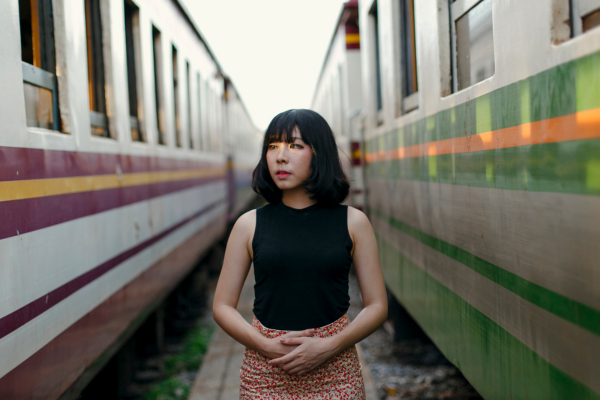Lesbians are playing a major role in South Korea’s radical political and lifestyle movement known as “4B,” an anti-patriarchy movement that denounces marriage, having children, dating, or having sexual relations with men. It is an ideological and lifestyle-oriented movement against South Korea’s socially constructed femininity and beauty standards and those who practice 4B often live together in cooperative households and participate in women-only activities.
South Korea has one of the largest gender pay gaps in the world, a rising criminal sex crimes industry, and one of the highest female homicide rates. Although the 4B movement began primarily as a heterosexual feminist response to the country’s extreme patriarchal culture, according to writer and best-selling author Lee Min-gyeong, it has since evolved to being lesbian-centered.
Although homosexuality is technically legal in South Korea, this doesn’t mean it’s accepted. Legal protections for LGBTQ+ people are rare and hate speech is common. In her book Flowers of Fire, journalist Hawon Jung states that a majority of the population—nearly 60 percent of South Koreans—say they would not accept a homosexual person as a friend or colleague, and openly LGBTQ+ public figures are rare. Opposition to LGBTQ+ rights, including same-sex marriage, stems in part from the outsized power of the country’s evangelical churches.
Regardless, norms are changing fast. Lesbian and feminist expressions that resist traditional beauty norms widely found in the U.S.—wearing short hair, gender non-conforming clothing, and not wearing makeup—are a more recent phenomenon in South Korea and are the result of mass protests including #MeToo but also “Escape the Corset,” which encouraged women to stop conforming to rigid traditional beauty norms.
The numbers of women who practice 4B are hard to determine—anywhere from five thousand to fifty thousand. But according to Lee Min-gyeong, who lives with her girlfriend and two other couples in a shared apartment in Seoul, lesbians were invisible in the 4B movement at first.
“The 4B movement was homophobic,” she tells Tagg. “However, many of the women who participated were, in my eyes, lesbians, or people who had the potential to make the transition to lesbianism, but who lacked the cultural resources to reconstruct their identities.”
But in 2020, Lee Min-gyeong says, “Lesbianism took center stage.”
Siwon Moon, another lesbian who practices 4B, says being in 4B has been essential to helping lesbians find each other and come out.
“I think the number of women who found their queer sexuality in 4B is much bigger than queer women who had already identified themselves as queer when they joined 4B,” she says.
Siwon Moon says her mother was a role model because she was someone who didn’t fit South Korea’s narrow female social constructs. “I always thought there was something wrong with society and first discovered feminism in 2016,” she tells Tagg. “Since I agreed that women needed to protest against patriarchy, I chose to join the movement. Before 4B, women who did not follow the traditional role were blamed and despised. But after the 4B movement, the word for ‘anti-marriage’ became popular, and not being married became a respected lifestyle.”
But practicing 4B is not an easy road. “Attacks on women who do not have relationships with men are severe,” says Lee Ye-eun, a 26-year-old documentary director and post-graduate student who lives in Seoul.
She says men get angry when women refuse to dress in gender-conforming ways. “They think, ‘How dare a woman not try to look good to a man?’” And Korean sayings like “Women are Christmas” refer to women who are over 25 years old and seen by society as no longer desirable for marriage.
While there is still a long way to go, support for LGBTQ+ rights in South Korea is growing. According to a 2021 Gallup South Korea poll, public support for same-sex marriage is now close to 40 percent and the overwhelming majority of South Koreans under 29 years of age recognize homosexual relationships as a form of love.
Siwon Moon credits 4B with changing her life: “South Korea is flooded with heterosexuality. Everything is about heterosexual romance. Considering this kind of situation, I think women are forced into heterosexuality. I was forced into heterosexuality. I lived as heterosexual for more than 20 years although I was never sexually attracted to men.”
Like for so many other Korean women, 4B helped Siwon Moon reject compulsory heterosexuality. “I discovered that I am actually attracted to women. I began to embrace women more and learned to wash off my inner misogyny.”
Haein Shim also contributed to this article.

